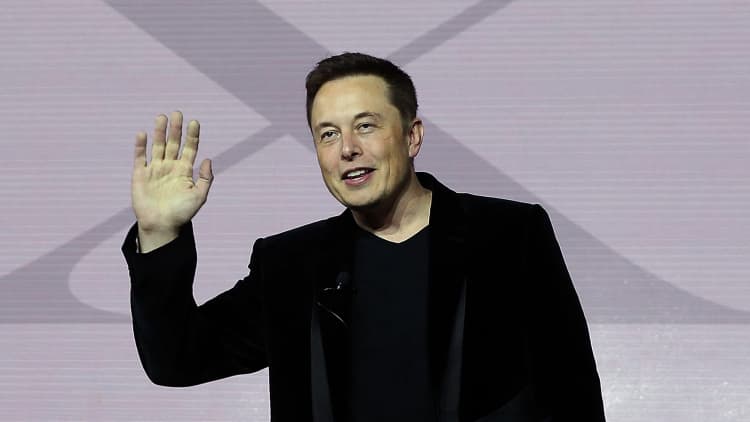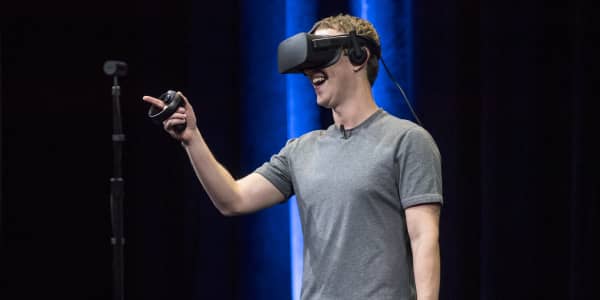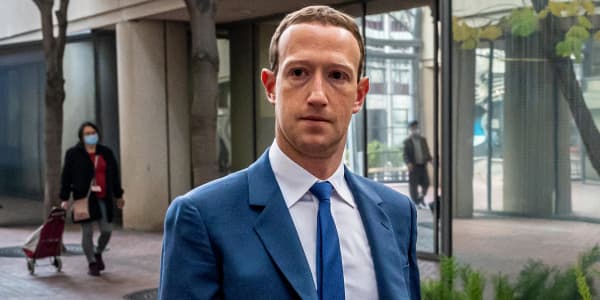You have to hand it to Elon Musk. He didn't just sell the deal of his life last week when shareholders of Tesla and SolarCity agreed to a merger.
He pulled off the deal amid widespread criticism from business ethics and corporate governance experts who slammed Musk from the moment the $2.6 billion deal was proposed. Any skepticism Musk deserves he created for himself, but that skepticism now needs to move from the deal to something else: Just what exactly have Tesla investors gotten themselves into?
Some pundits point to the deal as part of Musk's master plan to create a car powered by solar and to develop batteries that radically change how we generate and store energy. Musk noted earlier this month that a solar roof for cars is "probably" going to be added as an option for Tesla buyers.
But a good place to look at the lingering confusion as the combined electric-car and solar-power company moves forward is the reaction from stock analysts. Musk's vision is so bold that some on Wall Street remain unable to fully comprehend it or, in the least, grasp how it's a catalyst for Tesla shares in the short term.
"Whatever the synergies are down the road, it's negative for current holders,'' said Efraim Levy, analyst at CFRA Research.
Whatever the synergies are down the road, it's negative for current holders.Efraim Levyanalyst at CFRA Research
Tesla, a longtime money loser whose shares are set to have their first down year since its 2010 initial public offering, is set to take off with the launch next year of its Model 3 sedan. But instead of riding the inflection point into profitability, Musk is doubling down by having Tesla take on SolarCity, which he owns 22 percent of and which lost $758.7 million in the first nine months of 2016.
Skeptics like Levy argue that SolarCity brings too much new risk to Tesla, a company that burned nearly $2.2 billion of cash last year as it geared up to launch the mid-priced Model 3 sedan and open its $5 billion Gigafactory to make batteries.
Levy rates Tesla shares a hold with a $205 price target, but argues the SolarCity deal dilutes Tesla's near-term earnings so much that it's hard to support.
More from Tech Drivers:
A computer code that has IT departments around the globe on edge
Tech's tricky transition under Trump
Uber for orchestras
Musk says the deal will boost his longer-term vision of a diversified renewable-energy company whose products can generate electricity, store it and use it to power both homes and cars without using fossil fuels.
"To solve the sustainable-energy question, we need sustainable-energy production, which is going to come primarily in the form of solar. ... Combine that with stationary storage and an electric vehicle and you have a complete solution to a sustainable-energy future," he said in June. "Those are three parts that are needed. And those are three things that I think Tesla should be providing."
'This is going to be a tough one for the sell side.'
To analysts, though, that forward-looking vision leapfrogs a basic difficulty in understanding the combined entity today.
"This is going to be a tough one for the sell side," said Theodore O'Neill, who follows Tesla for Ascendiant Capital Markets. "I'm an industrials and auto analyst who doesn't really know the solar market. It's [also] going to be an issue for the SCTY analysts who don't know the auto side of the business." O'Neill did spend some time earlier in his career following solar companies.
Levy alluded to another difference between how investors should view the future and how far off Musk looks into it: The Tesla Motors CEO has a checkered track record of delivering on short-term promises. The opposition the deal faced is in part a function of the diminished trust flowing from missed earnings targets and production delays on the Model X crossover, and skepticism that the company will be able to get the Model 3 to market at full scale before 2018.
"There are often a lot of promises without delivery, at least on time," Levy said.
Levy hasn't published a 2017 earnings forecast for the combined company yet. Without the deal, Tesla's car and battery business would be poised to deliver on many of its promises, earning as much as $4.60 a share by 2018, a little more than 40 times the current stock price.

The ranks of stock analysts doesn't lack for Tesla bulls.
James Albertine of Consumer Edge Research said that while SolarCity loses money, Tesla could sell cars at an annual clip that will accelerate quickly once the Model 3 kicks in.
Albertine continues to recommend Tesla shares and thinks they could hit $260 in the next year, but even he concedes the deal has clouded the picture, and it's a picture that had been rapidly coming into focus for Tesla. Now it's a "20- to 30-year vision" that's harder to evaluate, he said. And since the total picture of solar-focused businesses will take years to develop, there's a good argument that Musk is paying too much for SolarCity today, before it's able to make that vision happen, he said.
Even before taking on money losing SolarCity, the market was concerned about cash drains at independent Tesla as it worked on the Model 3 and the Gigafactory. Tesla's spent $1.5 billion on capital expenditures in the last five quarters, while its cash position hovered at $3.1 billion. But the cash drain has slowed as those projects near completion, Albertine said. "You can tick them off the list," he said. "They're further along and in a better cash-flow generating position than people think."
With 400,000 Model 3 reservations in hand, compared with 17,350 cars and trucks it has sold in the United States this year, Tesla could be building cars at a 500,000-per-year clip by the end of 2018, Albertine estimated. "It will lead many to recognize that the short sellers were wrong," he said.
Musk himself is unaffected by doubt.
The combination, he says, will save the combined company $150 million a year in overhead, and SolarCity will ship $5 billion in cash to Tesla over the next three years, as already-paid-for residential solar projects generate rising amounts of revenue.
Yet this year, those SolarCity projects have helped produce nearly a $2 billion loss in operating cash flow and capital spending this year.
The one thing Musk — and his company's shareholders — can be sure of: The deal assures that the long-running argument over whether he's more of a technical visionary or a financial dilettante who is indifferent to short-term losses and milestones will keep on going for at least several more years.
— By Tim Mullaney, special to CNBC.com




